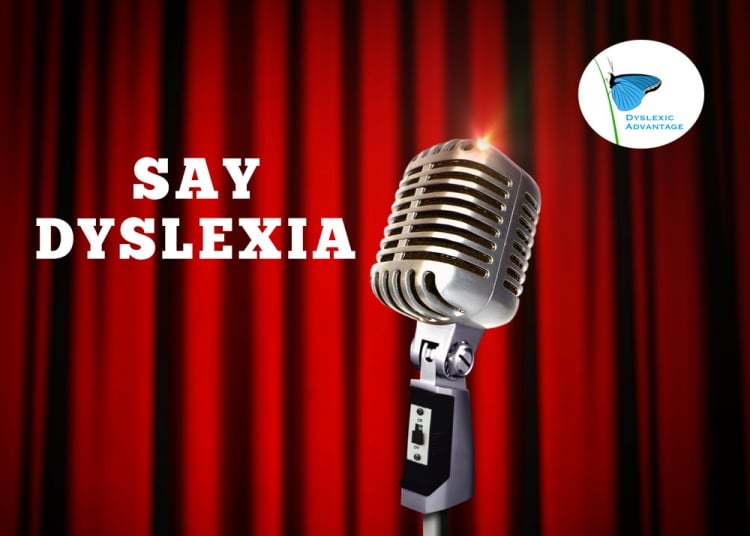The US Department of Justice just released final regulations regarding the implementation of the American for Disabilities Act. "These rules clarify and refine issues that have arisen over the past 20 years and contain new and updated requirements." Direct link to the...
Could Dyslexia and Dysgraphia Affect IQ Scores? [Premium]
From our Community: Can Dyslexia and Dysgraphia Affect IQ Scores? My son got officially diagnosed with both dyslexia and dysgraphia this week. I suspected he would come back with the diagnosis. What surprised me a bit were his IQ scores. The scenario is a common one – one sibling is dyslexic while the other is not. The non-dyslexic student qualifies easily for a highly capable / gifted program while the dyslexic one does not…although that may be the one who is a “head turner” because of creative thinking, intuitive leaps, and general reasoning and questioning capacity. The short answer is YES. There are many individual factors that can affect the accuracy of a student’s testing. A student’s temperament (perfectionistic, introverted), oral fluency, persistence / resilience, verbal […]
The Mislabeled Dyslexic Student [PREMIUM]
“In the course of the 11 years of the family genetics project, many parents whose children had superior or very superior verbal reasoning shared with the research team how difficult it was to convince educators that their child had a learning disability. Frequently they reported being told that their child was bright and the problem was just a matter of motivation and their child not being willing to work hard. “ – Drs. Virginia Berninger and Robert Abbott, 2013 If you have the means to get IQ testing for your student for dyslexia, do it. The biggest reason is that it’s very common to underestimate intelligence in the setting of dyslexia. This sad fact can lead in gross underestimations and inappropriate classroom placements Giftedness can […]
[PREMIUM] Gifted with ADHD: How We Asked for Extended Time & a Better Schedule
The road to advocacy has many twists and turns so if your student has moderate to severe difficulties with processing speed, be prepared to be nimble and responsive to challenges that arise. In our previous newsletter, we mentioned some of the advocacy that Laura and her son John took on his path as a 2E (gifted, dyslexic, dysgraphic, and ADD) high school student. Here are some additional problems that arose and ways Laura and John responded: PROBLEM: LOW GRADES WHEN DENIED ACCOMMODATIONS D’s in AP English Class (no accommodations for tests) although a strong score on the AP exam. Although John’s dyslexia has been identified since elementary school, the school suggested he no longer needed accommodations. SOLUTION: ACCOMMODATIONS Laura and John appealed the zeroes given […]
Gifted with Dysgraphia [PREMIUM]
For many, the most frustrating aspect of dyslexia is writing. Writing gets better over time, but it may remain effortful and some will find non-verbal outlets for expression such as drawing, film, building physical objects or managing teams more expressive. Because dyslexic thinkers often have strong associational minds and personal memories, writing difficulties are more likely to be due to difficulty getting information down on paper rather than not having something to say. Common obstacles to writing can be many – narrowing ideas, putting selected ideas into order, putting emotions, complex feeling or perceptions, and experiences into words, then harnessing the physical writing steps and visual memory of words (spelling) to get them down on paper. Students with dysgraphia can be helped by first dramatically reducing […]
Bridging the Gap to Reading Long Words [Premium]
In our last post, we wrote about the 3rd grade gap or wall. Dyslexic students typically get through the hard slog of phonemic awareness and then parents and teachers breathe a sigh of relief. Many times, the extra work fades away and students are integrated back into their usual classroom routine. All seems well, but a problem may remain. Reading remains effortful and the complexity of the text goes up. Students may not be able to keep up. With little extra help and too little time to complete assignments, the “guess and go” approach may dominate the reading strategy so that the gap between peers increases. A large part of the problem may be that students have not effective strategy to read long words. These problems can come […]
Dyslexic Advantage Premium – Issue 11 Organizing Creativity [Premium]
Premium Issue 11 October 29, 2016 Organizing Creativity, Stealth Dyslexia, Dyslexia and Self Image, Memorizing for School, What Worked for 2E Gifted Dyslexics, Art Therapy for Dysgraphia, Hands-On Math for Fractions, More Interactive Reading Strategies, Mastering Foreign Languages and More This issue has memory strategies that seem to be helpful for a majority of dyslexic folk – whether it’s history facts, science vocabulary, or foreign languages. Subscriptions support Dyslexic Advantage. [/wcm_restrict]
[Premium] What to Do If a Reading Curriculum Doesn’t Work
It happens to everybody. You research a curriculum thoroughly or it gets through several levels of a review and then you put it into action and… it just doesn’t connect. What do you do? There are several common reasons why a curriculum doesn’t connect with a particular student – and so some trial and error and modification need to take place. The most common reasons that certain curricula fail for a particular student include: 1. Going Too Fast Because there can be difficulty registering information accurately (sounds, letters, words), a student may need to slow the pace down considerably if the lessons aren’t sinking in. It may seem counterintuitive if you feel a student is slipping farther behind, but reducing work and simplifying […]
Why It’s Important to Say Dyslexia But Also Support Its Strengths
What is Dyslexia? Dyslexia is a brain-based learning difference with a strong genetic basis. It characterized by unexpected difficulties in fluent reading and specific patterns of difficulty with writing, spelling, and sometimes math as well as strengths in...
How They Did It: Dyslexia, Gifted Ed, and SAT and ACT Accommodations [Premium]
Today I had a chance to catch up with a member of our Dyslexic Advantage community who had just heard the great news that her 17 year old son had been granted accommodations for both the SAT and ACT, including the calculator-free section of the new SAT. This family navigated several difficult transitions: private school to public gifted school, middle to high school, and now college entrance exams. Accommodations granted this student included: Double time for reading, computer for essay, extra breaks between test sessions, reader, double time for math, double time for essay, record answers in test book, 4-function calculator on non-calculator active sections Hooray! Mom sent all the previous evaluations from All Kinds of Minds (Mel Levine’s old system), but also old speech […]
Dyslexia and IQ: What You Must Know [Premium]
Here are 4 of the Most Important Things You Should Know About Dyslexia & IQ: #1. It Can Be Used to Identify Strengths and Talents. In our minds, one of the best reasons that dyslexic students benefit by IQ testing is that it can quickly establish their intelligence and strengths. There are many strengths that aren’t measured by IQ testing, of course, but also many that it can find – and it provides an objective standard with schools and other institutions wil accept. For dyslexic students in particular, it tends to trump traditional ‘achievement’ assessments because the best tests are given one-on-one (we do not like group IQ tests) and tests of higher order thinking are for the most part untimed (the verbal tests) involve […]
Can Gifted Kids with Dyslexia Fly at School? – When Tests and Schools Fall Short [Premium]
I recently came across Bobby Gilman’s article on the critical issues facing twice-exceptional or Gifted LD students at school. It’s an ambitious paper for sure, but provides a solid big picture view of the challenges that 2E students face in their pursuit of an appropriate education. The challenges include states drastically scaling back services for students with Specific Learning Disabilities (SLDs) of which dyslexia is considered a part. Sometimes the issue is that the threshold for students to qualify for services is so prohibitively low (e.g. 5 or 12th percentile), that many students are missed and fall off any radar. Regarding Response to Intervention or RTI: Gilman et al. states: “RTI was not developed with gifted children in mind, and adaptation of its rules for gifted children […]


![Could Dyslexia and Dysgraphia Affect IQ Scores? [Premium]](https://www.dyslexicadvantage.org/wp-content/uploads/2016/06/dyslexia-dysgraphia-iq.jpg)
![The Mislabeled Dyslexic Student [PREMIUM]](https://www.dyslexicadvantage.org/wp-content/uploads/2018/04/Screen-Shot-2019-08-30-at-12.13.00-PM.jpg)
![[PREMIUM] Gifted with ADHD: How We Asked for Extended Time & a Better Schedule](https://www.dyslexicadvantage.org/wp-content/uploads/2018/02/Screen-Shot-2019-08-30-at-12.24.34-PM.jpg)
![Gifted with Dysgraphia [PREMIUM]](https://www.dyslexicadvantage.org/wp-content/uploads/2017/10/Screen-Shot-2019-09-01-at-7.46.37-AM.jpg)
![Bridging the Gap to Reading Long Words [Premium]](https://www.dyslexicadvantage.org/wp-content/uploads/2016/11/Screen-Shot-2016-11-04-at-9.52.37-AM.jpg)
![Dyslexic Advantage Premium – Issue 11 Organizing Creativity [Premium]](https://www.dyslexicadvantage.org/wp-content/uploads/2016/10/Screen-Shot-2016-10-29-at-4.27.33-PM.jpg)
![[Premium] What to Do If a Reading Curriculum Doesn’t Work](https://www.dyslexicadvantage.org/wp-content/uploads/2016/09/our-shutterstock-puzzle.jpg)

![How They Did It: Dyslexia, Gifted Ed, and SAT and ACT Accommodations [Premium]](https://www.dyslexicadvantage.org/wp-content/uploads/2016/09/Screen-Shot-2019-09-10-at-1.59.16-PM.jpg)
![Dyslexia and IQ: What You Must Know [Premium]](https://www.dyslexicadvantage.org/wp-content/uploads/2016/06/iq-graphic-scaled.jpg)
![Can Gifted Kids with Dyslexia Fly at School? – When Tests and Schools Fall Short [Premium]](https://www.dyslexicadvantage.org/wp-content/uploads/2016/06/shutterstock_281110997.jpg)













